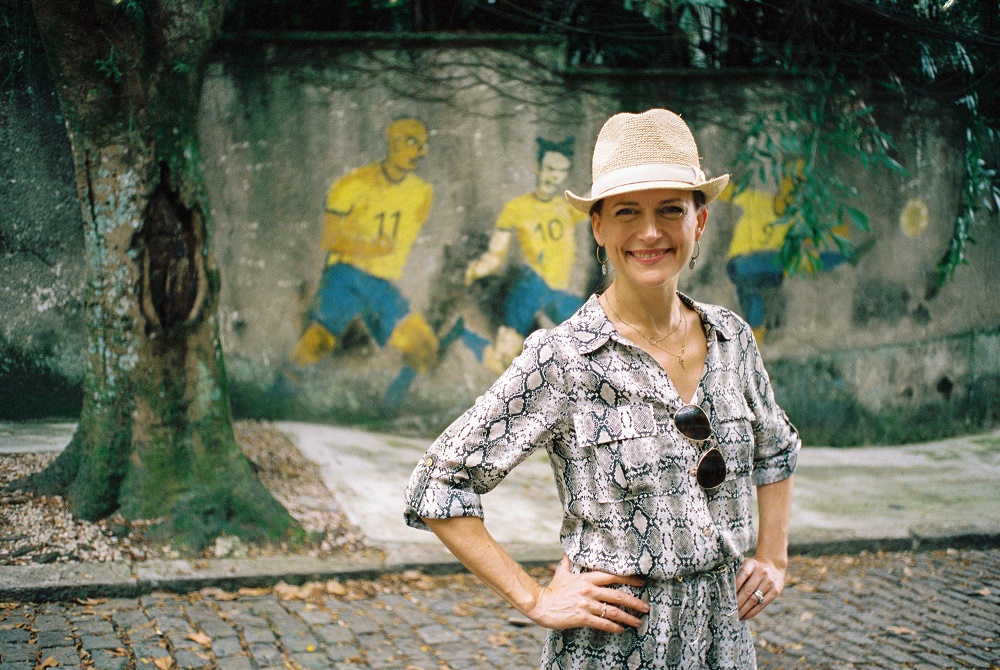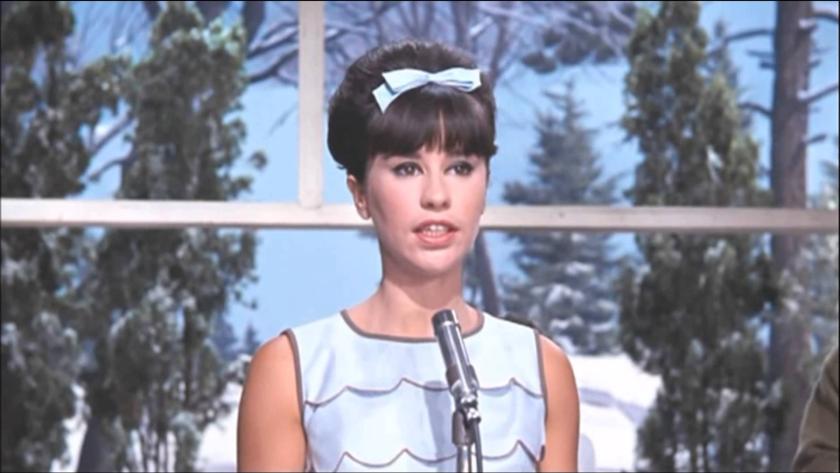Some years ago broadcaster Andy Kershaw introduced on BBC World Service radio a piece of Brazilian music with this blunt dismissal: “When I hear a track by, say, Gilberto Gil, I tell myself: ‘Right, time to take the lift and go to bed’.” It wasn’t a terribly joined-up complaint, but (in Kershaw-speak at least) it made sense.
He’d arguably chosen the wrong musician for his swipe – Gil remains relentlessly inventive and, at 74, fantastically dynamic – but it was clear what he was getting at. A lot of Brazilian (or Brazilian-inspired) pop music has, at half-cock, made it into hotel lobbies and lifts, and should come with a catalepsy warning. “The Girl from Ipanema” has unfortunately fallen into such potential, and penitential, senescence.
Yet to its credit BBC Four, given a substantial hour-long space for documentary exploration, desists from making things quite that simple. The Girl from Ipanema: Brazil, Bossa Nova and the Beach, fronted by Proms compère and Strictly star Katie Derham, and clearly mood-making for Rio de Janeiro’s upcoming Olympics, doesn’t follow poor old Andy into immediate boredom and inanition.
A few minutes in, a lift’s flicking floor-digits briefly tell that story, but then, often hatted by a Panama and with a different top in every scene, Derham is allowed to pace the streets of Copacabana and Ipanema, with the requisite sun-soaked shots of the beaches and mountains, and evoke a richer narrative.
In short, “The Girl”, originally “Garota de Ipanema” became a huge international hit in 1964. It was created in 1962 by composer Tom Jobim and poet Vinícius de Moraes, and sung by João Gilberto, who also played guitar. In 1963 in New York, on vocals in English, Gilberto’s wife Astrud accompanied by saxophonist Stan Getz recorded – along with João and Jobim – the version we know today.
With its lilting picture of a teenage girl making her way to the beach, it was the acme of bossa nova, and the world’s first easy-listening introduction to it. Bossa nova, as Derham admirably explains, had arrived in the cool clubs of Rio de Janeiro’s south zone (the non-poor bit, certainly today) in the late 1950s and was a becalmed development of the really poor and – not sufficiently explained here – carnival-driven samba of Brazil’s blacks. Bossa is, essentially, white samba.
 In Rio, the most fertile period for bossa nova (which means perhaps “new beat” or “new way”) was between 1959 and 1963. North American jazzers descended on the idiom, and by the mid-1960s Brazil’s unique and serenely syncopated invention was becoming globalised ear-pap. Even the brilliant Jobim – who died too early, aged 67, partly of drink – was won over to the US dollar, blandly to duet “The Girl” with Sinatra. João Gilberto, now 85, has been a recluse for 40 years and long notorious for not showing at concert bookings.
In Rio, the most fertile period for bossa nova (which means perhaps “new beat” or “new way”) was between 1959 and 1963. North American jazzers descended on the idiom, and by the mid-1960s Brazil’s unique and serenely syncopated invention was becoming globalised ear-pap. Even the brilliant Jobim – who died too early, aged 67, partly of drink – was won over to the US dollar, blandly to duet “The Girl” with Sinatra. João Gilberto, now 85, has been a recluse for 40 years and long notorious for not showing at concert bookings.
When the bossa moved north – and, in 1964-5, the Beatles took over the western hemisphere, but especially the US – it kind of died. The film touches on this and threatens to become really interesting when it relates, with some compelling footage from the time, how a liberalising Brazil was turned on its head by a military coup in 1964.
Bossa was transmuted into defiance and poetic anger by the likes of Chico Buarque and Caetano Veloso, and indeed Gilberto Gil. This slightly cowardly documentary needed a further half-hour at least to explore that. Did the producers seek out any of those geniuses, the manifest and most famous inheritors of the Jobim-Gilberto legacy, to tell us what it was really like to be inside and evolve the form? There is so much more to say about a deeply influential musical revolution, but there’s barely a whisper of it here.
What we get is a sequence of chats with perfectly affable practitioners – Monica Vasconcelos, Carlos Lyra, Wanda Sá (whom we hear singing out of tune) – and Derham smiling and screwing up her intelligently engaged face as she listens to them, and sometimes to music (and just how she knows how to drape her arm over the edge of a piano).
This is a pleasant, jaunty, politely narrated look at an enormously complex moment in South American culture. Of course it’s a timely slot vis-à-vis the Games. But it’s also a massively missed opportunity to tell a much deeper tale.
- James Woodall is the author of A Simple Brazilian Song: Journeys Through the Rio Sound
- Read more TV reviews on theartsdesk















Add comment